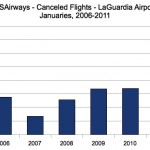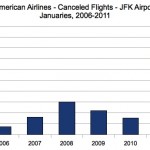Passover is almost here. This holiday that celebrates the Biblical exodus of the Israelites from slavery in Pharaonic Egypt to freedom in the land of Israel has long been more than just a central narrative of Jewish existence. The Exodus story has been used by numerous groups of people to define their relationship to the world in circumstances of oppression, from African-Americans both pre- and post-slavery, to the Irish departure from a famished Ireland and their search for a better life in America.
In 2011, the Exodus story takes on a whole new meaning, as we have cause to celebrate not only the historical freedom of the Israelites. but the modern freedom of Egyptians after Mubarak. To carry the analogy forward, one might say that the Egyptians (and Tunisians, too) are currently wandering the in the desert, trying to figure out how to restore order amidst their new-found freedom, much as the ancient Israelites did. We will surely see “Golden Calf” manifestations, in the form of putative leaders and potential governments, before these great nations find their surest footing forward.
Yet 2011 also feels like a moment for reflection, if not outright sadness: as we clean our homes, plan our Seders, and prepare to celebrate Jewish freedom, one cannot help but observe that many Jews have enslaved themselves all over again. In Israel, the Jewish state is (rather ironically) enslaved by its own oppression of Palestinians: it cannot figure out how to achieve true freedom, nor cannot it bear to free the Palestinians whom it has kept ensnared for more than 40 years. (Longer than the Israelites were wandering in the desert.) Nor, sadly, has official Israel been able to embrace freedom for neighboring Egypt. Israel instead preferred the sacred safety offered by the oppressive Mubarak to finding a way to extend an olive branch of hope to those who, like Jews themselves, yearned to be free.
American Jews are no more free. We too are sadly enslaved by a super-structure of Jewish officialdom that works diligently to maintain $3 billion a year in military aid to Israel from the United States, and, wherever possible, to guarantee that the so-called “peace process” won’t demand too much of Israel. Every piece of bad news is embraced by this super-structure as an opportunity to assert its dominance and reinforce the rightness of its perspective.
But: in insistently asserting that the Israeli-Palestinian conflict requires a nuanced approach; in choosing to believe that Israeli freedom can only be maintained at the expense of Palestinian and Egyptian oppression (and the oppression of other Arabs); in consciously choosing to de-universalize the Jewish message of freedom that has been a bedrock of Western thought … we lose something of ourselves. We lose the clarity of the message: Let my people go. And by “my people,” we mean any peoples oppressed anywhere.
All should not be lost. Here are a selection of short statements—all less than 140 characters, designed for easy circulation on Twitter and text message. Join me in making a statement this season, that freedom from oppression is not a right reserved for the few, and should not come at the expense of the lives of other people. Here we go:
- 5000 years of oppression of Jews doesn’t justify Israeli oppression of Palestinians.
- Ancient Egyptian oppression of Israelites doesn’t justify modern Israeli support for an oppressive Egyptian government
- “Let my people go!” Wherever they be, remember the bitterness of slavery and support freedom.
- “The works of my hands are drowning in the sea, and you wish to sing praises?!?” (Talmud Tractate Megillah 10b) http://bit.ly/fQOBIB
- “And what does the Lord require of you? To act justly and to love mercy and to walk humbly with your God.” Micah 6:8
- Freedom comes in many forms: freedom of movement & action, of thought, of expression. Celebrate each, hope for all.
- “We hold these truths to be self-evident, that all men are created equal,” courageous words in 1776 to which we should all aspire.
- For Ai WeiWei, & every other person like him, held against their will for the “crime” of independent thought, we must demand freedom.
We cannot sustain our own humanity by choosing to degrade someone else’s. That is not a Passover-specific message, but it is a very Jewish one, and it’s time we started trying to live up to that ideal. When we proclaim, at the end of the Seder, “Next year in Jerusalem!” we must ask ourselves: at what price?





